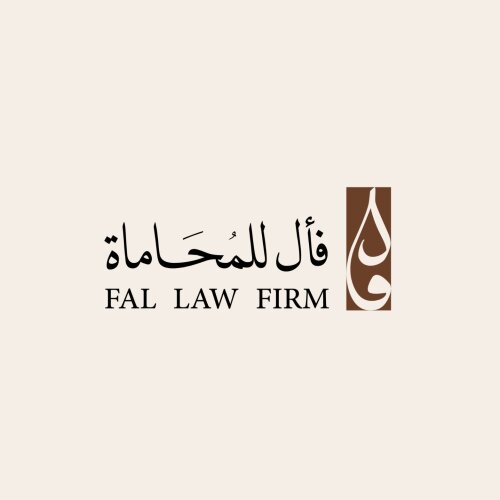Best Conveyancing Lawyers in Riyadh
Share your needs with us, get contacted by law firms.
Free. Takes 2 min.
Free Guide to Hiring a Real Estate Lawyer
List of the best lawyers in Riyadh, Saudi Arabia
About Conveyancing Law in Riyadh, Saudi Arabia
Conveyancing in Riyadh, Saudi Arabia, refers to the legal process of transferring property ownership from one person or entity to another. This process involves a series of legal, administrative, and financial procedures to ensure the lawful and secure transfer of real estate titles. Riyadh, as the capital and economic hub, has a dynamic real estate market influenced by local regulations and Sharia law. The system is distinct from many Western jurisdictions and involves specific documentation, government approvals, and legal oversight to protect the interests of all parties involved.
Why You May Need a Lawyer
Engaging a lawyer when dealing with conveyancing matters in Riyadh is highly advisable due to the complex legal landscape. Common situations where legal help can be essential include:
- Purchasing or selling residential or commercial property
- Transferring property due to inheritance or family settlement
- Resolving disputes over property boundaries or ownership rights
- Drafting and reviewing sale agreements and title deeds
- Ensuring compliance with government regulations and documentation requirements
- Assisting expatriates and non-Saudi nationals with property transactions, subject to legal allowances
- Handling mortgage or financing arrangements involving real estate
- Representing clients in case of fraud or title defects
A local lawyer’s expertise can protect your interests, ensure proper due diligence, and help avoid costly mistakes.
Local Laws Overview
The conveyancing process in Riyadh is primarily governed by Sharia law and a specific set of property and real estate regulations issued by the Saudi authorities. Key aspects include:
- Property ownership for Saudi nationals is straightforward, while requirements for non-nationals are strictly regulated and often limited to specific areas or types of property
- All real estate transactions must be registered with the Saudi Ministry of Justice
- Title deeds are issued and authenticated through the Notary Public
- Property taxes are generally low, but certain fees and levies may apply depending on the transaction
- Sale contracts must conform to the Arabic language, with translations often required for foreign parties
- The use of electronic platforms such as the Najiz Portal for e-conveyancing is growing, streamlining applications and registrations
- Due diligence regarding outstanding loans, bans on sale, or existing tenants is mandatory
- Dispute resolution falls under the jurisdiction of specialized real estate and general courts, with strong emphasis on written contractual terms
Adhering to these regulations is critical to ensure the successful and lawful transfer of property in Riyadh.
Frequently Asked Questions
What is the first step in the conveyancing process in Riyadh?
The first step is usually to sign a preliminary sale agreement and conduct thorough due diligence on the property, including verifying ownership and title status through the Notary Public and appropriate government platforms.
Can foreigners buy property in Riyadh?
Foreigners are allowed limited rights to purchase property under specific conditions, mostly for non-Saudi Gulf Cooperation Council nationals or licensed foreign investors. Restrictions apply and require prior government approval.
How long does a typical property transfer take?
The process can vary but generally ranges from a few days to several weeks, depending on the complexity of the transaction, regulatory approvals, and the accuracy of submitted documents.
Is it necessary to use a lawyer for conveyancing?
While it is not mandatory by law, it is recommended to engage a qualified lawyer to navigate legal requirements, documentation, and protect your interests, especially in contested or complex transactions.
What documents are required for conveyancing in Riyadh?
Key documents include the original title deed, identification documents, sale agreement, property tax clearance, and any relevant government approvals or court orders (in case of inheritance or disputed ownership).
Are there any taxes or fees in the conveyancing process?
Yes, there are fees for registration, documentation, and sometimes service charges, but Saudi Arabia does not impose standard property taxes on transactions like in some other countries. Check with authorities for current rates and levies.
How are disputes in property transactions resolved?
Disputes are typically resolved through the real estate court system, which may involve mediation, hearings, and enforcement of contractual terms, all guided by Sharia principles and local laws.
Can property be gifted or inherited?
Yes, property can be transferred as a gift or inheritance, but this requires appropriate legal documentation, adherence to inheritance laws, and formal registration with the government authorities.
What happens if there is a mortgage on the property?
If a mortgage exists, it must be settled or transferred before the property title can be lawfully conveyed to the new owner. Lenders’ approvals are crucial in such scenarios.
Is electronic conveyancing available in Riyadh?
Yes, electronic conveyancing is available via governmental platforms like Najiz Portal, expediting applications, approvals, and registrations for faster and more transparent processing.
Additional Resources
If you need more information or official guidance, consider these resources:
- Saudi Ministry of Justice - Handles property registration, title authentication, and legal documentation
- Najiz Portal - Government’s official electronic platform for legal and property services
- Riyadh Municipality - Offers zoning, permits, and planning information for urban properties
- Chambers of Commerce and industry legal advisory units - Some offer guidance for businesses with real estate interests
- Certified real estate offices accredited by the Saudi government for transactional support
- Law firms experienced in Saudi real estate and property law
Next Steps
If you are considering any conveyancing activity in Riyadh, it is strongly advised to consult with a legal expert familiar with both local property laws and the practical realities of the Saudi real estate market. Begin by:
- Identifying your legal needs related to the property transaction
- Contacting a qualified real estate lawyer or law firm
- Preparing relevant documentation before your consultation
- Asking about the lawyer’s experience with similar transactions
- Understanding the legal fees and timelines involved
- Verifying the property’s legal standing and history before proceeding
Early legal advice can help avoid common pitfalls, ensure compliance, and provide peace of mind throughout the conveyancing process in Riyadh, Saudi Arabia.
Lawzana helps you find the best lawyers and law firms in Riyadh through a curated and pre-screened list of qualified legal professionals. Our platform offers rankings and detailed profiles of attorneys and law firms, allowing you to compare based on practice areas, including Conveyancing, experience, and client feedback.
Each profile includes a description of the firm's areas of practice, client reviews, team members and partners, year of establishment, spoken languages, office locations, contact information, social media presence, and any published articles or resources. Most firms on our platform speak English and are experienced in both local and international legal matters.
Get a quote from top-rated law firms in Riyadh, Saudi Arabia — quickly, securely, and without unnecessary hassle.
Disclaimer:
The information provided on this page is for general informational purposes only and does not constitute legal advice. While we strive to ensure the accuracy and relevance of the content, legal information may change over time, and interpretations of the law can vary. You should always consult with a qualified legal professional for advice specific to your situation.
We disclaim all liability for actions taken or not taken based on the content of this page. If you believe any information is incorrect or outdated, please contact us, and we will review and update it where appropriate.

















